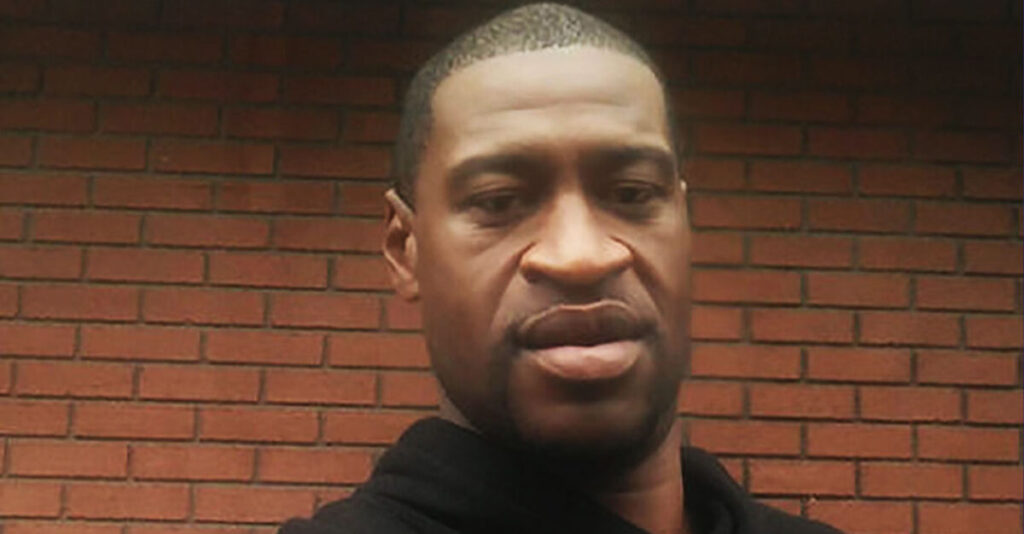By Stacy M. Brown
NNPA Senior National
Correspondent
As the nation approaches the fifth anniversary of George Floyd’s murder, a new Pew Research Center study reveals a sobering assessment from Americans: the heightened focus on race and racial inequality following the 2020 protests has largely failed to improve the lives of Black people.
In the immediate aftermath of Floyd’s death at the hands of former Minneapolis police officer Derek Chauvin, who was convicted of murder and manslaughter and sentenced to over 20 years in prison, public attention surged. Millions joined protests across the country.
Support for the Black Lives Matter movement peaked, with 67% of Americans backing the cause, and 52% believed at the time that the national reckoning would result in meaningful change for Black Americans.
Today, only 27% say those changes materialized. Pew’s new survey, conducted February 10–17, 2025, among 5,097 adults, finds that 72% now say the increased focus on racial inequality has not improved life for Black people. Even among Democrats, optimism has waned significantly — just 34% believe the racial reckoning made a difference, down from 70% in 2020.

Support for Black Lives Matter, which surged in 2020, has dropped to 52%. Favorability has remained highest among Black adults (76%), Democrats (84%), and adults under 30 (61%), while only 45% of White adults and 22% of Republicans express support.
“The justice system is not fair when it comes to Black people,” said a Black Republican in their mid-40s, one of many respondents offering open-ended reflections.
“When convicted of crimes, Black people always get heavier sentences than their White counterparts, even when they have no prior convictions.”
The study also finds that Americans have become more pessimistic about the future of racial equality.
Among those who believe the country hasn’t gone far enough on equal rights, only 51% now say it’s likely that Black people will eventually achieve equality with White people, down from 60% in 2020. Just 32% of Black adults say they believe racial equality is attainable — a stark contrast with 61% of White adults who say the same.
As companies once eager to embrace diversity, equity, and inclusion (DEI) now pull back — a trend accelerated by Donald Trump’s executive order banning DEI efforts across the federal government and pressuring private employers to follow suit — public sentiment toward such initiatives has soured. Lawsuits and backlash have contributed to the rollback, even before Trump’s intervention.
Americans are split on whether companies should weigh in on political or social issues: 50% say it’s important, while 50% say it’s not.
However, among those who remember corporate responses to the 2020 protests, 69% believe those statements were made under pressure rather than out of genuine concern. Pew’s findings also show how partisan divides color perceptions of race in America. While 82% of Black Americans say the country has not gone far enough on racial equality, only 14% of Republicans agree.
A majority of Republicans (66%) say too much attention is paid to racial issues, while 56% of Democrats say there’s too little.
Video footage of police violence continues to shape opinion.
Nearly nine in ten Americans have seen such videos, with 63% saying they help hold officers accountable.
Yet 54% say the videos make it harder for police to do their jobs.
Black adults (65%) and Democrats (68%) are most likely to view widespread sharing of the videos as a good thing.
As the 2020 movement fades in visibility, feelings of exhaustion have risen. Half of Americans, including 54% of Democrats and 48% of Republicans, say they feel extremely or very often exhausted when thinking about race in the U.S. Democrats are also more likely to feel angry and fearful, while Republicans are more likely to feel uninterested or satisfied.
In measuring change, the verdict is grim.
Most Americans (54%) say the relationship between Black people and police is no better than it was before Floyd’s killing. A third say it’s worse. Just 11% say it’s better.
Looking ahead to Trump’s second term, 48% of Americans believe he will make racial matters worse, compared to 28% who believe he will improve things.
Party affiliation predicts opinion: 82% of Democrats expect conditions to deteriorate, while 53% of Republicans think they’ll improve.
The Pew Research Center’s comprehensive study reveals that what was once hailed as a racial awakening now feels, to many, like a missed opportunity.
“[Black people] still are paid less than Whites when both are performing the same job,” said a Black Democrat in their early 70s. “Black people are still looked at as criminals when they haven’t committed any crimes.”




